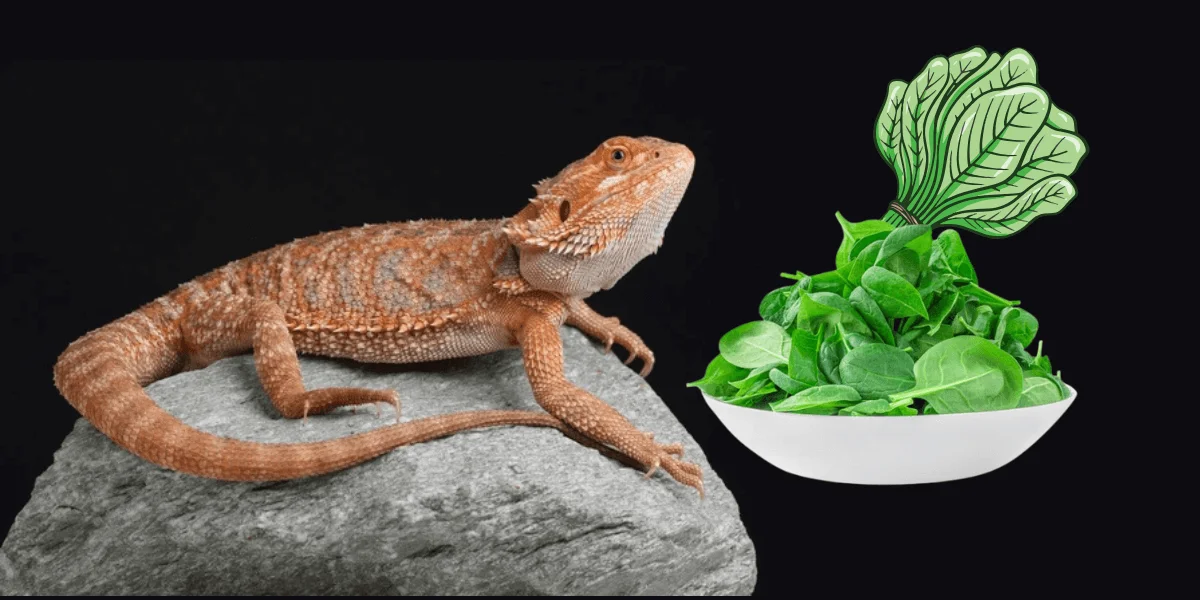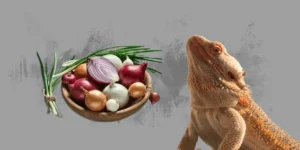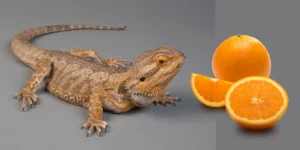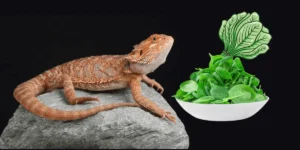For humans, spinach is known as a superfood because it’s full of fiber, antioxidants, vitamins, and minerals that we can eat every day to support our health. But when it comes to bearded dragons, the case is very different. Give too much, and your dragon can get sick or even die. The good news is that the risks can be avoided if you only offer it in very small amounts. From my own experience raising beardies, I’ve noticed that even though spinach isn’t a daily need, it can still bring a little boost when used wisely.
There’s no doubt that spinach has its benefits, but it also comes with costs if overused. That’s why I keep it as an occasional treat rather than a staple in my dragon’s diet. Watching how my pet responds helps me decide whether to keep it or skip it, and in most cases, offering spinach once in a while is perfectly safe.
How Often is Spinach Okay for Your Beardie?
As Dragon Keepers, we sometimes wonder if giving our pet a bit of spinach is safe or a risk. From my own experience raising bearded dragons, I’ve learned that it’s only necessary on rare occasions to add these leaves to their salad, maybe once every couple months. While spinach offers nutritional perks like Iron for carrying oxygen to organs, Folate for tissue growth and cell functions, Fiber for digestion, and Vitamins (Vitamin A from beta carotene for vision, reproduction, and growth; Vitamin C for the immune system; Vitamin K1 for blood clotting), it’s not something Beardies should eat often. Even though it has virtually no sugar, making it heart-healthy compared to a high-sugar diet that may cause fatty liver disease, diabetes, obesity, or even heart failure, giving more than a little spinach can interfere with their development.
The real problem is the calcium and phosphorus ratio. Spinach is phosphorus-rich, and since phosphorus binds to calcium, it blocks how well calcium is absorbed. A proper ratio should be around 1.1 to keep this vital mineral in balance, but too much spinach can cause metabolic bone disease (MBD), which can damage a beardie’s survival, weaken bones, and in severe cases even lead to death. When my dragon had some underlying health concerns, my vet confirmed that feeding spinach too often was not beneficial. Instead, I stick to other leafy green options that give a health boost without messing up the ratio. That way, I know my bearded dragons are enjoying the superfood benefits of vitamins and minerals without risking their dragon’s blood balance.
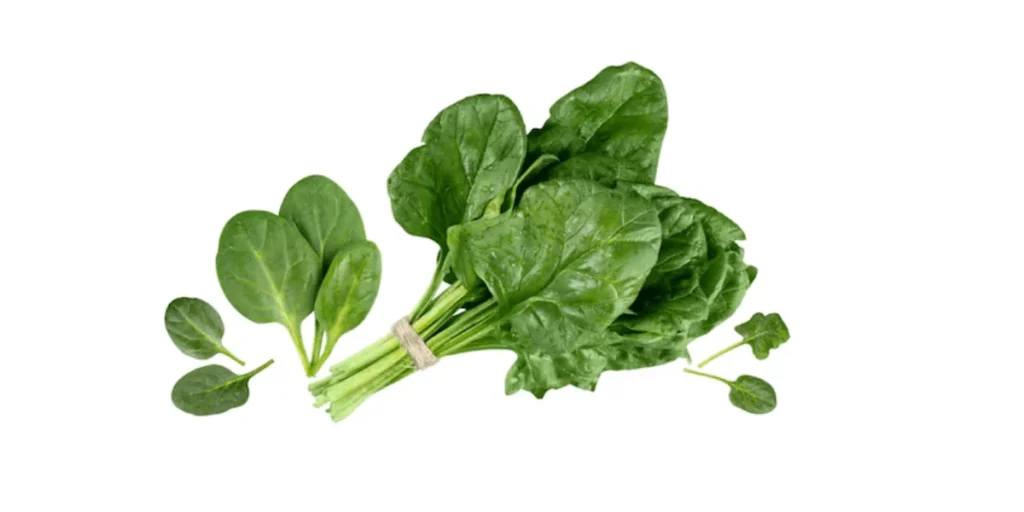
Can Bearded Dragons Eat Baby Spinach?
When I first introduced baby spinach to my Bearded dragon, I noticed how quickly he went for the leaves, almost like he was crouching low on his rock ready to grab a treat. The nutritional value of spinach is undeniable, but when it comes to a dragon’s diet, moderation is everything. Unlike regular spinach, the softer leaves of plain spinach varieties are easier to chew, but they should still be given only in a limited way and offered infrequently.
From my own experience, it’s tempting to mix baby spinach more often because of its vitamins, but too much can upset the balance of a healthy diet. The key is to remember that while a Bearded dragon might enjoy the taste, both regular spinach and plain spinach should never replace the staple foods. Keeping spinach as an occasional treat allows your dragon to enjoy a bit of variety while staying strong and active on his rock.
Why Spinach Can’t Be a Daily Food for Bearded Dragon
Many new beardie owners think giving spinach daily is healthy because of its benefits, but the fatal flaw lies in its high oxalates. These bind with calcium before it can be absorbed into the dragon’s body and carried through the bloodstream. Without enough calcium, beardies face metabolic bone disease (MBD), where limbs may become warped, weak, or even paralyzed. I’ve seen beardies come to the vet with MBD symptoms like shaking limbs, tremors, a softening jaw and face bones, along with weakness, fatigue, stunted growth, and even swollen rear legs. It’s heartbreaking because this disease is preventable with the right foods, proper diet, and steady calcium supplements.
Other oxalate-rich greens like Swiss chard, carrot tops, and beet greens can cause the same problem if fed too often, and in serious cases, the imbalance can slowly kill your pet. Along with this, giving too many supplements can lead to Vitamin A overload since spinach also has beta carotene. Too much builds up and causes Vitamin A toxicity, also called hypervitaminosis A, leading to overdose symptoms like swelling, low energy, weight loss, and dehydration. A good plan is to rotate greens, keep calcium balanced, and add calcium supplements without overdoing Vitamin A.
Pro Tip: always watch for early signs of MBD and check with a vet if your beardie shows anything unusual.
Safe Ways to Serve Spinach to Your Beardie
When you feed your beardie, the first rule is to make sure any organic spinach is well washed to remove pesticides and dirt, because their body is sensitive. I usually chop leaves into smaller pieces so there’s no risk of choking, then place it in the veggie bowl with other veggies, greens, and even a little fruit. Sometimes I offer raw spinach for its fresh nutrients, but I’ve noticed my beardie prefers a mix, like a mini spinach salad with carrot tops, bell peppers, or sweet potatoes. Mixing different textures keeps a picky eater more interested, and it makes them gobble their food without fuss.
Another method is to balance cooked spinach with other staple greens since spinach alone shouldn’t be the main diet. I like to serve spinach only every other month, making sure it’s part of a variety of safe foods. A beardie’s salad may also include grapes, strawberries, or bananas, but I never forget that protein from feeder insects like Dubia roaches and other bugs is just as important. Dragon Keepers often swap between greens and insects to keep meals healthy and balanced.
Pro Tip: always keep the mix dragon safe and don’t rely on spinach as the only source of nutrition.
Conclusion
Spinach can be both a blessing and a problem for your beardie. While it does provide valuable nutrients, the hidden risks like oxalates and calcium imbalance make it a food best kept for rare treats instead of daily meals. From raising my own dragons, I’ve learned that moderation and variety are the safest plan. Pairing spinach with other greens, feeder insects, and a proper diet ensures your dragon enjoys the benefits without suffering the costs. In the end, careful choices by Dragon Keepers are what keep these pets strong, active, and thriving.
FAQs
No, spinach should not be a daily food. Too much can block calcium absorption and cause health issues like metabolic bone disease (MBD).
Baby spinach is softer and easier to chew, but it still carries the same risks. It should only be offered infrequently and in small amounts.
Spinach is best kept as an occasional treat, maybe once every couple of months, alongside safer staple greens.
Watch for MBD symptoms such as shaking limbs, softening jaw, weakness, or swollen rear legs. If you notice these, consult a vet right away.
Safer greens include collard greens, mustard greens, dandelion greens, and turnip greens. These provide calcium without the oxalate risk

